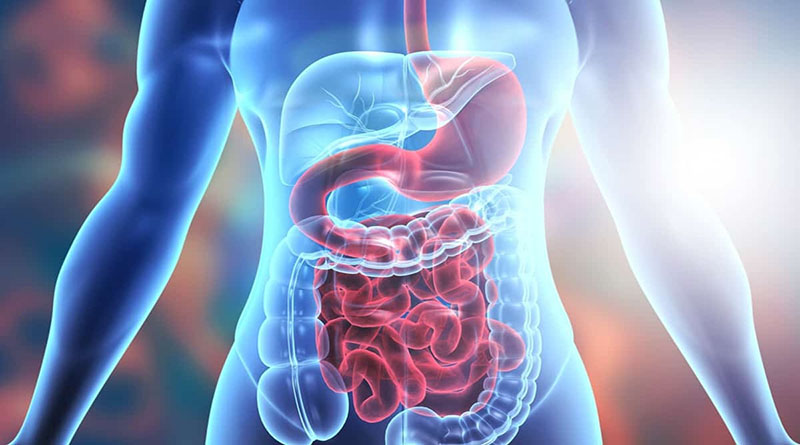Gastrointestinal diseases are a common part of many people’s lives, but what are the causes of them and how can we effectively deal with them? In this article, we will explore some of the main factors and strategies for maintaining the health of the gastrointestinal tract. The health of the digestive system is of vital importance for our overall well-being.
What are the most common gastrointestinal diseases?
Constipation
Constipation is a functional problem that hinders the movement of the bowels and/or bowel movements. In this condition, bowel movements are infrequent (less than three times a week) or incomplete. Constipation is usually caused by the consumption of “dry food” or a reduced intake of fiber. Constipation leads to the formation of hard stools and sometimes can be the cause of anal fissures and hemorrhoids.
You can treat your constipation by:
- Increasing the amount of fiber and water in your diet.
- Exercise and increasing the intensity of physical activities.
- Taking appropriate mild laxatives.
Irritable Bowel Syndrome (IBS)
Irritable Bowel Syndrome is a functional condition in which the muscles of the colon contract more or less than “normal”. Consumption of certain foods, medication intake, and emotional stress are among the factors that can trigger IBS.
The symptoms of IBS include:
- Abdominal pain and spasms.
- Excessive gas and bloating.
- Changes in eating habits.
- Harder or less frequent bowel movements than normal.
- Alternating constipation and diarrhea.
Treatment includes:
- Avoiding caffeine-containing beverages.
- Increasing the amount of fiber in your diet.
- Minimizing stress or practicing different stress management techniques.
- Taking medications.
- Avoiding dehydration.
- Getting quality rest/sleep.
Hemorrhoids
Hemorrhoids are enlarged veins in the anal canal and are characterized as a structural disease. They are swollen blood vessels that cover the anal opening. They are caused by chronic overstrain during bowel movements, persistent diarrhea, or pregnancy. There are two types of hemorrhoids: internal and external.
Internal Hemorrhoids
Internal hemorrhoids are blood vessels on the inner side of the anal opening. Due to strain, they can easily become irritated and start bleeding. Treatment includes:
- Improving bowel habits (avoiding constipation and not straining during bowel movements).
- Use of ligating bands to remove vessels.
- Surgical removal.
External Hemorrhoids
External hemorrhoids are veins located just under the skin on the outer side of the anus. Sometimes, after straining, external hemorrhoidal veins can burst, forming blood clots under the skin. This is usually a very painful condition. Treatment includes the removal of the clot and the vein under local anesthesia and/or the removal of the hemorrhoid itself.
Anal Fissures
Anal fissures are also a structural disease. They are fissures in the lining of the anal opening. The most common cause of anal fissures is either very hard or watery stools. The fissures in the anal lining expose the underlying muscles that control the passage of stools through the anus. Anal fissures are one of the most painful problems, as the exposed muscles are irritated by the passage of stools and lead to intense burning pain, bleeding, or spasms after defecation. Initial treatment of anal fissures includes taking pain relievers, consuming high-fiber foods to reduce the occurrence of large, bulky stools, and sitting in warm water baths. If these treatment methods do not relieve the pain, surgery may be required to repair the sphincter muscle.
Diverticular Disease
Diverticular disease is characterized by the presence of small outpouchings (diverticula) in the muscular wall of the colon, which form in weakened areas of the colon. They usually occur in the sigmoid colon, the area with high pressure in the lower part of the colon. Diverticular disease is very common and occurs in 10% of people over the age of 40 and 50% of people over the age of 60 in Western cultures. It is often caused by a low fiber intake in the diet.
Diverticulosis can sometimes progress to diverticulitis. Complications of diverticular disease occur in about 10% of people with this condition. They include infection or inflammation (diverticulitis), bleeding, and obstruction. Treatment of diverticulitis includes treating constipation and sometimes antibiotics if the condition is severe. Surgical intervention is necessary as a last resort for people who have significant complications and need removal of the affected segment of the colon.
Colon Polyps and Cancer
Colorectal cancer is the third most common type of cancer in the world. Fortunately, with advances in early detection and treatment through screening, colorectal cancer is one of the most treatable forms of the disease. By using various methods for cancer prevention, it can be prevented, detected, and treated long before the appearance of symptoms.
The Importance of Screening
Almost all colorectal cancer cases start as polyps, benign (non-cancerous) growths in the tissues covering the colon and rectum. Cancer develops when these polyps grow, and abnormal cells develop and begin invading surrounding tissues. Removing polyps can prevent the development of colorectal cancer. Almost all precancerous polyps can be painlessly removed with the help of a colonoscopy. If not caught in the early stages, colorectal cancer can spread throughout the body. More advanced forms of cancer require more complex surgical interventions.
Most early forms of colorectal cancer do not cause symptoms, making screening particularly important. By the time symptoms appear, cancer may already be in an advanced stage. Symptoms include blood on or mixed with stool, changes in normal bowel habits, changes in stool, abdominal pain, weight loss, or constant fatigue.
Most cases of colorectal cancer are detected in one of four ways:
- Through screening of individuals with an average risk of colorectal cancer, starting at the age of 45.
- Through screening of individuals at a higher risk of colorectal cancer (e.g., those with a family or personal history of polyps or colorectal cancer).
- Through examination of the colon in patients with symptoms.
- As an incidental finding during a routine examination.
Colitis
There are several types of colitis, which are conditions that cause inflammation of the colon. They include:
- Infectious colitis
- Ulcerative colitis
- Crohn’s disease
- Ischemic colitis
- Radiation colitis
Colitis causes diarrhea, rectal bleeding, and abdominal cramps. Treatment depends on the diagnosis, which is made through a colonoscopy and biopsy.
Can Gastrointestinal Diseases Be Prevented?
Many diseases of the colon and rectum can be prevented or minimized by maintaining a healthy lifestyle, practicing good bowel habits, and undergoing colorectal cancer screening.
Colonoscopy is recommended for patients with an average risk at the age of 45. If you have a family history of colorectal cancer or polyps, colonoscopy may be recommended at a younger age.
If you have symptoms of colorectal cancer, you should consult your doctor immediately. Common symptoms include:
- Changes in normal bowel habits.
- Bright or dark blood on or in the stool.
- Unusual abdominal pain or gas.
- Feeling that the bowels have not emptied completely after a bowel movement.
- Unexplained weight loss.
- Fatigue.
Probiotics and prebiotics are recommended for prevention against the most common gastrointestinal diseases. Floten® is an exceptional synbiotic that combines multiple benefits for the human body. This powerful formula includes 10 beneficial bacterial strains that have the ability to restore gut flora and balance the functions of the gastrointestinal tract.
What makes Floten® such an effective product? The high bioavailability and special technology used in the production of this synbiotic complex ensure that the product is easily absorbed by the body. This means that the beneficial ingredients can be maximally effective in supporting the health of the gastrointestinal tract and the immune system.
Floten® is an example of an innovative product that can be included in your daily nutritional routine to maintain balance in gut flora and improve overall health.


